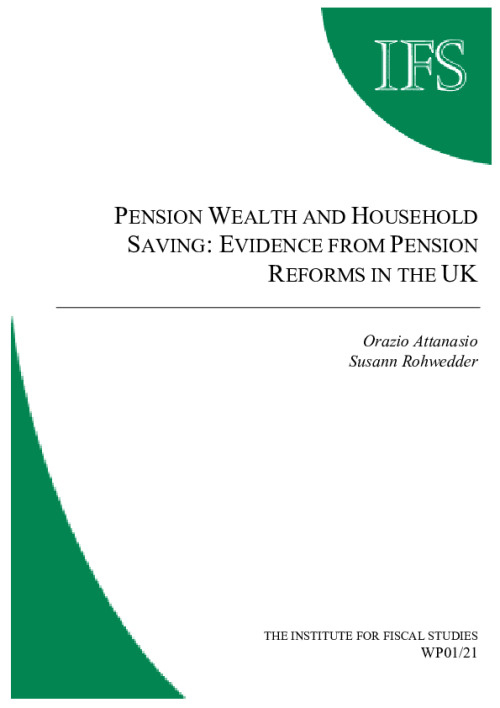Using three major UK pension reforms as natural experiments we investigate the relationship between pension saving and discretionary private savings. Unlike most differences-in -differences approaches which rely on average differences between the control and the treatment group, we use economic theory to model the response of each individual household. The model permits us to use both time- series and cross-sectional variation in a consistent way to identify the behavioural response. The study is based on data from the Family Expenditure Survey. A measure of pension wealth is not observed, but we estimate it by applying the rules of the pension system to observed individual characteristics. The changes in pension wealth as a result of the reforms are substantial. The empirical analysis suggests that the earnings -related tier of the pension scheme has a negative impact on private savings with substitution elasticities approaching 1.0. The impact of the flat-rate tier of the scheme is found not to be significantly different from zero.











